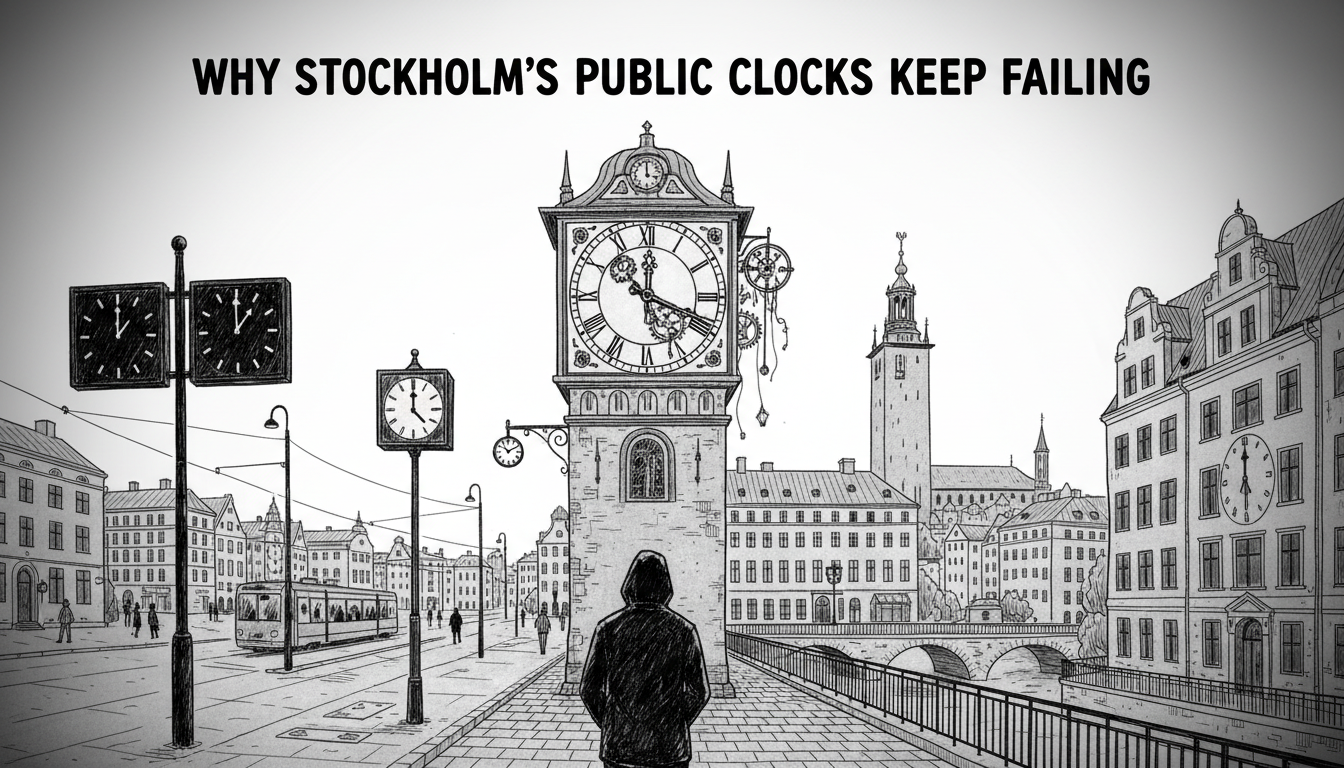Stockholm residents and visitors face a puzzling urban phenomenon. Multiple public clocks across the city display incorrect times or have stopped working completely. Affected timepieces include clocks at Nybroplan square, Norrmalmstorg business district, the PK-huset office building, Saint Jacob's Church in Kungsträdgården park, and the Royal Institute of Technology campus.
Sophia Reuterdahl, a master clockmaker, identifies the core problem. She says many property owners lack knowledge about maintaining these mechanical timepieces. This expertise gap causes the ongoing clock failures throughout Stockholm's public spaces.
The situation reveals broader challenges in preserving urban infrastructure. Property managers offer various explanations for the malfunctioning clocks. Lars Bergström manages Saint Jacob's Church, where the clock has been unreliable since the building's electrical system renovation. He receives daily questions from commuters who use the clock for timing their bicycle rides to work. Bergström promises the clock will resume normal operation by the first Sunday of Advent.
At the PK-huset building, technical management company ISS acknowledges the clock problems. Press spokesperson Hélène Norinder confirms they are working on repairs. The company recognizes the importance of functioning timepieces for public convenience.
Stockholm's public clock maintenance reflects wider urban management trends. Many European cities struggle with preserving mechanical infrastructure in digital times. The issue goes beyond simple repairs. It touches on questions about preserving public amenities and historical timekeeping devices.
Property owners face practical challenges. Mechanical clocks require specialized maintenance that many modern building managers lack. The knowledge gap between traditional craftsmanship and contemporary property management becomes apparent. This disconnect affects how cities maintain their character and functionality.
International visitors might find Stockholm's clock situation surprising. The city typically maintains high standards for public infrastructure. The widespread clock failures present an interesting contrast to Sweden's reputation for efficiency and precision. The situation shows how even well-organized cities can overlook seemingly minor but important public amenities.
The solution requires coordinated effort. Property managers need to prioritize clock maintenance. They must also locate and contract specialists who understand these mechanical systems. As cities modernize, preserving traditional elements becomes increasingly challenging yet culturally important.
What happens next? Property managers have committed to repairs. The success of these efforts will determine whether Stockholm's public clocks return to reliable timekeeping. The city's timepiece troubles serve as a reminder that urban functionality depends on both modern systems and traditional maintenance knowledge.
